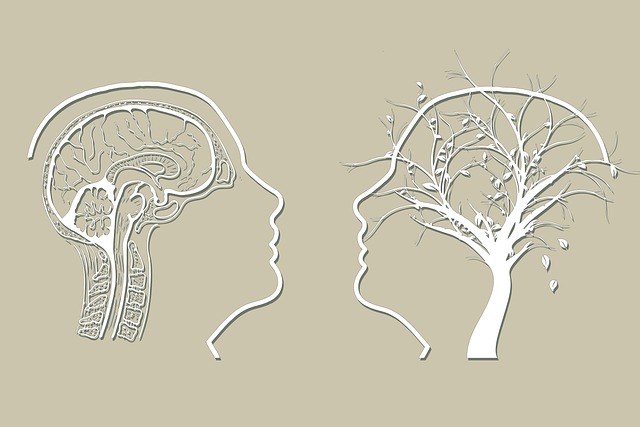Depression, affecting millions globally, is a complex mental health disorder with roots in trauma and emotional resilience. Denver Domestic Violence Therapy tackles depression by focusing on building resilience, stress reduction, emotional well-being promotion, adaptability, and positive mindset cultivation. They offer specialized counseling, group settings, workshops, holistic lifestyle strategies (exercise, sleep hygiene, nutrition), and mindfulness meditation practices to prevent and manage depressive episodes linked to domestic violence. Additionally, connecting with support networks and adopting healthy relationships are key aspects in overcoming depression, with Denver's therapy programs providing crisis intervention and relationship-building skills.
Depression is a pervasive condition affecting millions, but prevention is key. This article explores comprehensive strategies to combat this silent enemy, including understanding its signs and symptoms, the unique role of Denver Domestic Violence Therapy in intervention, and practical lifestyle changes for enhanced mental well-being. We delve into building supportive networks and the importance of professional help, offering guidance on when and how to seek support. By embracing these strategies, individuals can navigate life’s challenges with resilience and hope.
- Understanding Depression: Signs and Symptoms
- The Role of Denver Domestic Violence Therapy in Prevention
- Lifestyle Changes for Mental Well-being
- Building a Support Network: Connections Matter
- Professional Help: When and How to Seek It
Understanding Depression: Signs and Symptoms

Depression is a complex mental health disorder that impacts millions worldwide. Recognizing the signs and symptoms is a crucial first step in its prevention. It often presents as persistent feelings of sadness, hopelessness, and loss of interest or pleasure in activities once enjoyed. Individuals experiencing depression may exhibit changes in appetite and sleep patterns, fatigue, difficulty concentrating, and feelings of worthlessness or guilt. These symptoms can vary in intensity and duration but typically have a significant impact on daily functioning.
In the context of Denver Domestic Violence Therapy, understanding depression’s nuances is essential as it often arises from complex interconnections between traumatic experiences and emotional resilience. Building resilience, implementing stress reduction methods, and employing emotional well-being promotion techniques are strategies that can empower individuals to manage and prevent depressive episodes. These approaches focus on fostering adaptability, enhancing coping mechanisms, and nurturing a positive mindset.
The Role of Denver Domestic Violence Therapy in Prevention

Denver Domestic Violence Therapy plays a pivotal role in depression prevention by addressing underlying emotional and relational issues that can contribute to mental health challenges. Through specialized counseling approaches, individuals experiencing domestic violence or its residual effects can learn crucial coping mechanisms for stress management. This includes techniques for emotional regulation, which are essential tools to combat the overwhelming emotions often associated with trauma.
Beyond individual therapy, Denver Domestic Violence Therapy offers group settings and workshops that facilitate social skills training. Building supportive connections and enhancing communication abilities within these safe spaces empowers individuals to navigate relationships more healthily, reducing risks of future abuse and promoting resilience against depression.
Lifestyle Changes for Mental Well-being

Adopting a healthier lifestyle can be a powerful tool in preventing and managing depression. Regular physical activity, for instance, releases endorphins that boost mood and reduce stress. Aiming for at least 30 minutes of moderate exercise daily, whether it’s a brisk walk, yoga, or swimming, can significantly improve mental well-being. Additionally, prioritizing sleep hygiene is essential; adults should strive for 7-9 hours of uninterrupted rest each night. Quality sleep allows the brain to recuperate and consolidate memories, fostering better emotional regulation.
Nutrition also plays a vital role in mental health. A balanced diet rich in omega-3 fatty acids, vitamins B and D, and magnesium can support brain function and help maintain stable moods. Reducing caffeine intake and limiting processed foods, which can exacerbate anxiety and depression, is another effective strategy. Moreover, connecting with nature, engaging in hobbies, and cultivating positive social interactions contribute to a robust mental resilience, as evidenced by the growing interest in Denver Domestic Violence Therapy focusing on holistic well-being, including lifestyle changes for improved mental health outcomes.
Building a Support Network: Connections Matter

Building a strong support network is an essential aspect of preventing and managing depression. Connections with others can provide comfort, understanding, and a sense of belonging, all of which are vital for emotional well-being. This can involve reaching out to family and friends who can offer genuine care and support, or joining community groups and engaging in activities that foster social interaction. In Denver, domestic violence therapy programs not only address immediate crisis intervention guidance but also equip individuals with the skills to build and maintain healthy relationships, which is a cornerstone of preventing and overcoming depression.
Additionally, incorporating practices like mindfulness meditation can significantly enhance emotional healing processes. Taking time for self-care through meditation allows individuals to cultivate awareness of their thoughts and emotions, fostering a deeper sense of calm and resilience. This, in turn, can help prevent the onset of depressive episodes by providing healthy coping mechanisms when navigating life’s challenges. The support network and mindfulness practices work synergistically, creating a robust foundation for mental health and well-being.
Professional Help: When and How to Seek It

Depression is a serious mental health condition that requires professional attention and support. If you or someone close to you is experiencing persistent feelings of sadness, hopelessness, or loss of interest in activities once enjoyed, it’s crucial to seek help. Professional therapy can play a pivotal role in preventing and managing depression, offering effective tools and strategies for coping.
In Denver, domestic violence therapy centers often provide specialized services for individuals dealing with depression stemming from traumatic experiences or complex emotional situations. These professionals are trained in various therapeutic approaches, including cognitive-behavioral therapy (CBT), which helps identify and change negative thought patterns. Crisis intervention guidance is also offered to support individuals during intense periods of distress, providing immediate relief and long-term coping mechanisms. Additionally, healthcare providers can benefit from burnout prevention strategies, ensuring they take care of their own mental well-being while assisting others, thereby indirectly contributing to stress management on a larger scale.
Depression prevention is a multifaceted approach, and integrating strategies from various sections can significantly enhance mental well-being. While understanding depression’s signs and symptoms is crucial, seeking professional help like Denver Domestic Violence Therapy plays a pivotal role in early intervention and long-term management. Alongside this, adopting healthy lifestyle changes, building a robust support network, and knowing when to access professional assistance are essential tools in the battle against depression. Remember that connections matter, and with the right strategies, folks can foster resilience, navigate challenges, and dance through life’s metamorphosis.














